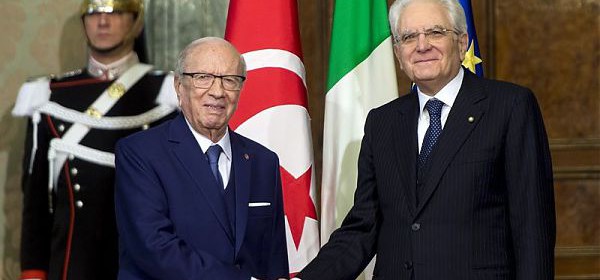MATTARELLA: "TUNISIA IMPORTANT PARTNER FOR ITALY"

“The centrality of the Mediterranean region is important both for Italy and for Tunisia. This central position strengthens the ties between our two countries”. This was said by the President of the Republic, Sergio Mattarella, after the meeting with the president of the Tunisian Republic, Beji Caid Essebsi, at the Quirinale. The meeting of Wednesday 8 February is the second between the two heads of State: the first one was in Tunisia on 18 May 2015, when President Mattarella visited the country in memory of the victims of the terrorist attack at the Bardo museum.
The talks between Italy and Tunisia included the migration phenomenon and the economic and cultural ties between the two countries. “We have signed six agreements between Tunisia and Italy. Agreements concerning tourism, health, the environment, energy, cultural relations and cooperation. These agreements mark a further step forward in the cooperation between Tunisia and Italy. We intend to proceed with great determination for the growth of our cooperation, for the development, against terrorism, against trafficking in human beings” President Mattarella added.
“Tunisia is for Italy also an important trading partner, as demonstrated by the success of the business forum which was held in May between Tunisian and Italian operators, and after that many Italian operators attended the 2020 Conference in Tunisia last November. We have many common perspectives with Tunisia, and the electric interconnection between Italy and Tunisia is a work that our country considers as a strategic and important achievement for our two countries”, he stressed.
Speaking of migration, the Head of State called for “reaching quickly a new agreement between Tunisia and Italy in terms of migration flows. With Essebsi we talked about the need to govern the phenomenon starting from its causes.”
For President Essebsi “One cannot manage immigration without dealing with development, and terrorism cannot be defeated just with the use of force. We need a comprehensive strategic plan for a future of peace and security”.
(ITALPRESS/MNA).
Source: medNews

